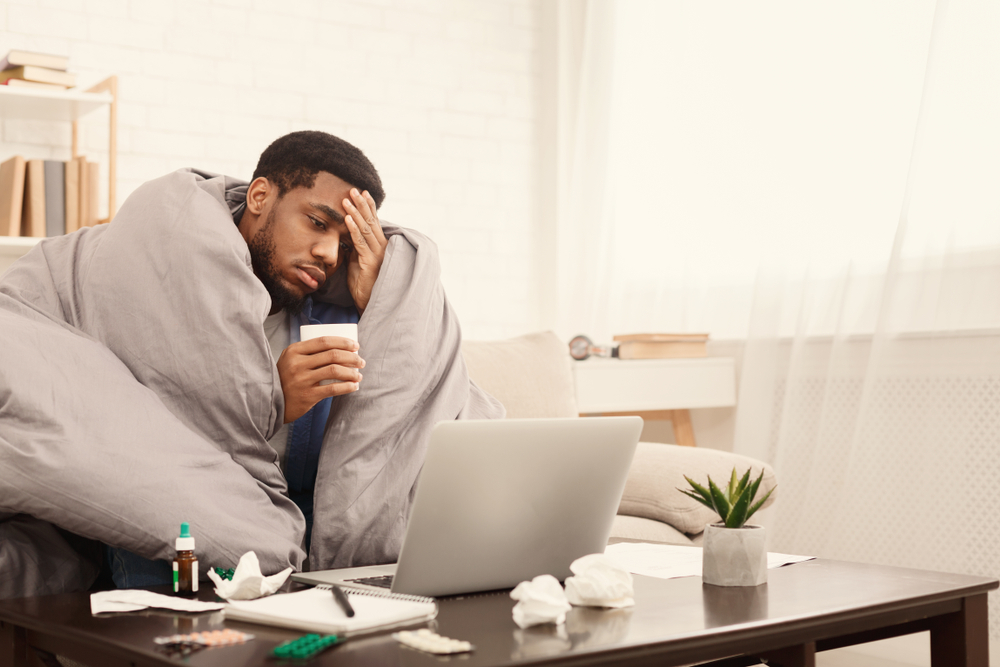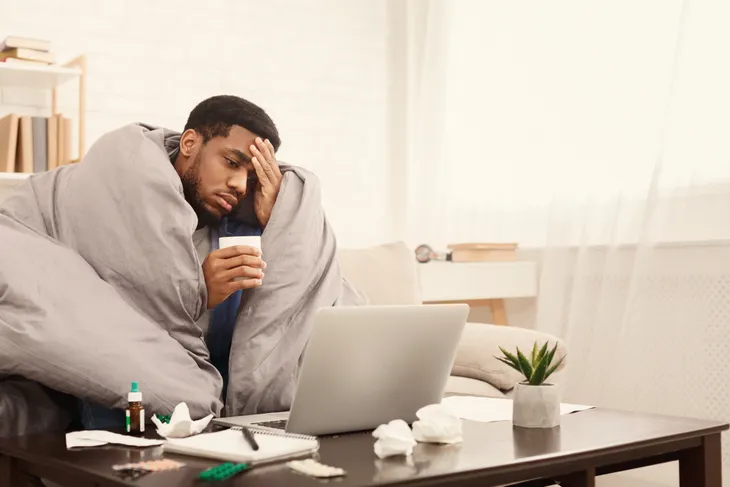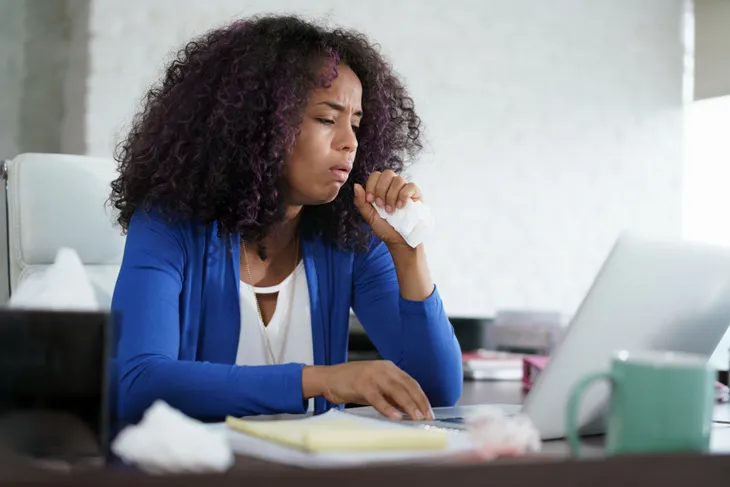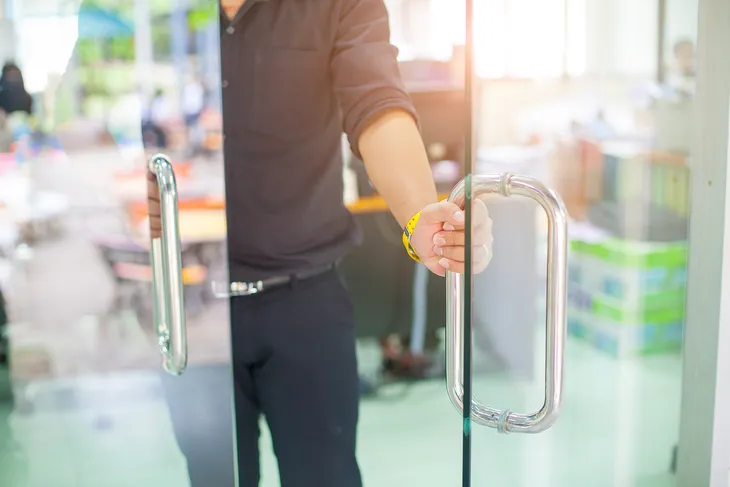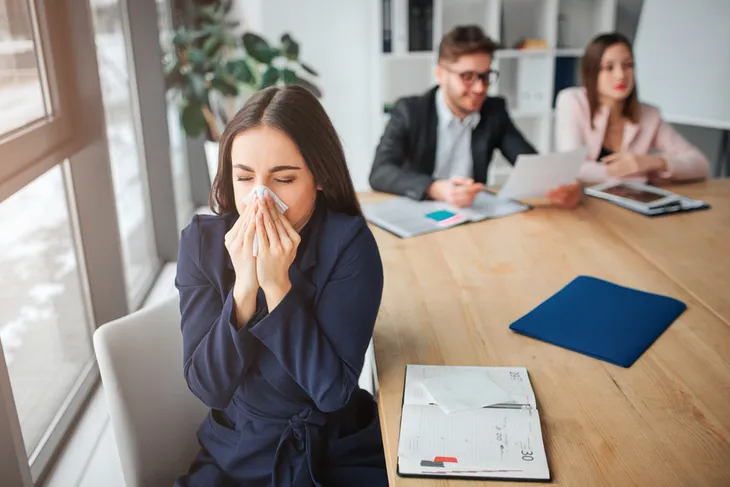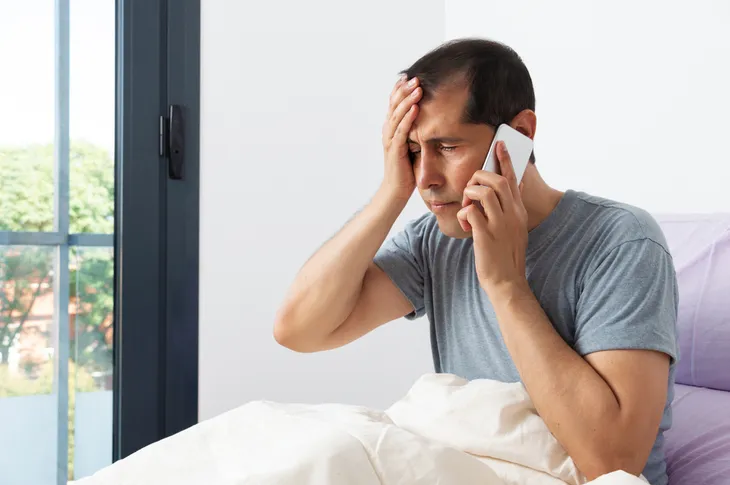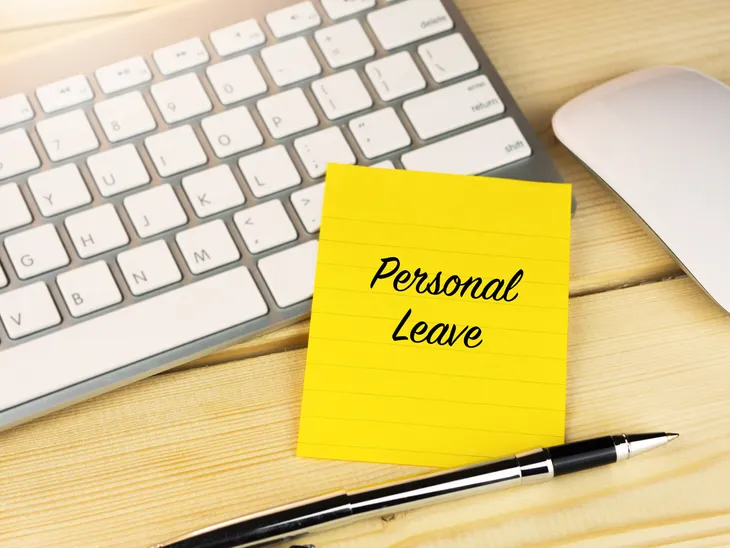- Everyone should take sick days when they need them but the reality is a lot of people choose to continue working, especially when they work from home.
- While you may be afraid to fall behind in work, not taking a sick day may prolong the sickness, be less productive, and can put your coworker’s health at risk too.
- The best thing you can do to help you recover from illness is to take a sick day and rest.
No one wants to get sick but it does happen. While it may seem like a no-brainer to call in sick to work when you’re actually sick, studies show a lot of people choose to work through it. And with more people working from home, taking a sick day often feels unnecessary. After all, you can work from the computer while you rest on the couch or in bed, right?
If this is your way of thinking, it may be time to reassess your mindset. Taking a sick day is a lot more important than you may think, even when you work from home. Follow along as we find out why people choose to work when sick, plus why it’s important to actually use those sick days.
Why Do People Work When Sick?
While you may hope everyone would take a sick day when they’re actually sick, the reality is a lot of people choose to continue working. But why is this the case?
According to Healthline, a recent study revealed that 25-percent of U.S. workers said their bosses expect them to work no matter what. The results also found that 42-percent of workers don’t take sick days because of deadlines and they’re afraid of falling behind. Another 37-percent reported they work when sick because they can’t afford to take time off.
The reality is, taking sick days has tons of benefits for you and your co-workers. Let’s take a look at what they are next.
You’re Less Productive When Sick
While you may be tempted to push through when sick, especially when working from home, the reality is you’re not working at 100-percent when you’re sick. Sickness can cause brain fog because the body is in “attack mode” trying to fend off the illness. And brain fog can make it harder to concentrate on the task.
Depending on your symptoms you may require frequent trips to the bathroom. Severe headaches can also make it difficult to look at a screen all day. All the more reason to just let your body rest so you can be more productive when you’re healthy.
You May Prolong Sickness
When you’re sick, your body really needs rest, and without it, it’ll likely take you longer to recover. Not only can this be frustrating for you and your body, but it can also mean more unproductive work days. So while you may feel like working through sickness is the better option, it really isn’t in the long run.
When you’re sick, your body really needs sleep, low stress, and proper nutrients and fluids to recover. And if you’re working, you’re not allowing your body the time and energy it needs to fight the sickness.
Sick Days Benefit Your Mental Health
Overexertion can not only prolong sickness, but it can take a toll on your mental health too. In fact, mental health and sickness kind of go hand in hand, in that, if you have poor mental health you may be more vulnerable to sickness, and if you’re sick and don’t take time to recover, you’re at risk for burnout and poor mental health.
According to Maple, when your body is in a state of chronic stress, you may be more susceptible to anxiety, depression, panic attacks, and even sleep problems. All the more reason to provide your body with the rest and sleep it needs to get better.
Setting a Poor Example
Self-care is so important and Real Simple points out that choosing to work when sick can set a poor example, especially for your children. The source explains, “Showing your kids you’re taking a sick day when you’re under the weather is a way to teach them that it’s OK to prioritize your health and model that example for them.”
Even if you don’t have children you can still be setting an unhealthy example in the workplace. For starters, if you’re a leader, it’s important to show your employees that it’s okay to take time to heal physically and mentally. And if you’re not in management, choosing to work when sick can set unhealthy expectations going forward.
You May Spread Germs to Others
Just because you want to push through sickness, doesn’t mean your coworkers will be pleased that you’re working. Going into the workplace when you’re sick puts your coworker’s health at risk too.
Even if you try to keep your distance, some viruses can spread up to 6-feet and others can be transmitted on surfaces like door handles, coffee makers, and water dispensers. It’s better for one person to be off sick than to infect the entire office, right?
Symptoms Can Be Disruptive
Getting your coworkers sick isn’t the only reason they may be unhappy with you. Some symptoms can be incredibly disruptive to the office such as coughing and frequent sneezing. So not only is your productivity affected by illness but you cause others to be unproductive too.
The best way to prevent this is to take the sick time you need to get better. If you’re feeling better but some symptoms are still lingering, consider asking your manager to work from home until all symptoms are gone.
What Justifies a Sick Day?
Sometimes it can be hard to know what actually justifies a sick day. Natasha Bhuyan, MD, a family medicine doctor, and West Coast medical director for One Medical in Phoenix tells Real Simple, “If you’re questioning [whether you’re well enough to work], that’s a good reason to take a sick day.” When in doubt, trust your instincts. After all, you know your body best.
Certain symptoms can also be key indicators that you need a sick day from chills and fever to flu-like symptoms. Let’s take a look at these next.
Take a Sick Day if You Have a Fever
Having a fever is never fun. Depending on what is causing the fever, you may experience headaches, sweating, chills, irritability, weakness, and loss of appetite. All of which can seriously disrupt your work day.
According to the Mayo Clinic, an oral temperature that is 100-degrees Fahrenheit (37.8-degrees Celsius) or higher is considered a fever. If you have a fever there is a good chance that you have a contagious illness, making it even more vital for you to stay home and take a sick day.
 Prostock-studio / Shutterstock
Prostock-studio / ShutterstockTake a Sick Day if You Have Flu-Like Symptoms
Although the flu may cause a fever, not everyone gets one. But there are other symptoms to look out for that may indicate you need a sick day. Other signs of the flu include cough, sore throat, runny nose, muscle or body aches, headache, and fatigue.
The flu is highly contagious and can cause severe complications in babies, seniors, and individuals with compromised immune systems. All the more reason to take a sick day if you suspect you have the flu.
Other Symptoms That Warrant a Sick Day
There are other symptoms that warrant a sick day such as vomiting and diarrhea. These can be signs of a contagious illness and frequent trips to the bathroom can disrupt your day. Plus these symptoms can seriously deplete your energy and no one is productive when they’re exhausted.
Frequent coughing, sore throat, runny nose, and headache can also be signs of contagious illness. If any of these symptoms disrupt your ability to effectively do your job then it’s best to take a sick day.
Finally, Verywell Health points out that some rashes can be contagious and a sign that “your immune system is taxed.” If you have a rash that is accompanied by a fever or if your doctor says the rash is contagious, be sure to stay home and take a sick day.
What to Do if You Need to Take a Sick Day
If you need to take a sick day, take one! The best thing to do is to follow your company policy for sick days, which often involves informing your manager as soon as possible. Be sure to communicate through an appropriate channel such as a phone call, email, or text message.
It’s also important to set boundaries with your employer too. If you’re really sick and need to take the day to rest, inform them that you’ll be unable to respond to emails or texts while resting. Establishing expectations before you get sick is best so that everyone is on the same page in the event that illness strikes.
Sick Days vs Personal Days
Many companies offer both sick days and personal days and it’s important to find out how they’re meant to be used. According to Indeed, sick days are usually meant to “cover employees who have an illness—contagious or otherwise—or have an injury resulting in hospitalization or surgery.”
Personal days, on the other hand, are typically meant to be used for necessary obligations such as taking care of an ill relative, when a relative passes away, or if you have jury duty. Some companies also offer mental health days as a part of their personal day benefits. During your onboarding process make sure you find out what your company provides.
What Should You Do During a Sick Day?
If you need to take a sick day, the best thing to do to help you recover is rest. While you may be tempted to check your email, avoid it as much as you can. Your emails will still be there waiting once you’ve recovered.
It may be best to put down all devices including your phone, and computer, and avoid watching tv before bedtime. Avoiding caffeine and drinking hot herbal tea may also help you recover. Eating healthy meals and getting plenty of sleep can help too. Finally, be sure to keep your employer updated. Some illnesses may require more than one sick day and informing them can ensure your duties are covered in the workplace.
